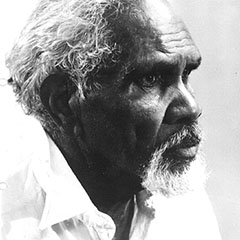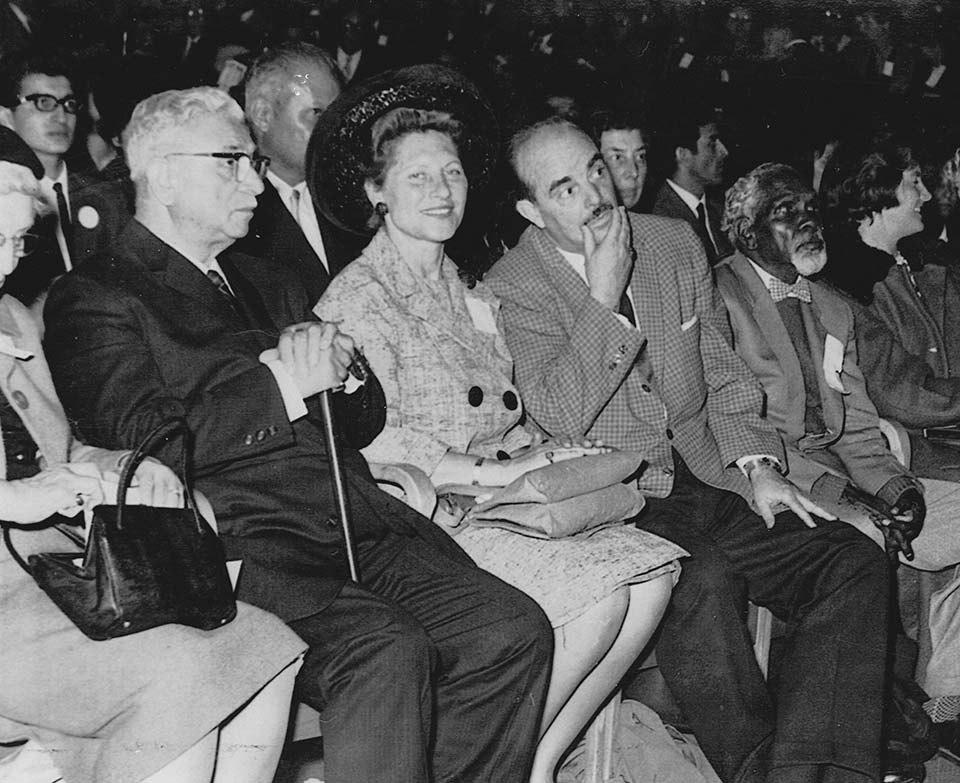
Uncle Fred, an Aboriginal Bahá’í
Fred Murray was the first of the Minang people to become a Bahá’í
Edited extract from: http://bahaichronicles.org/fred-murray/
Fred, remembered respectfully as ‘Uncle Fred,’ came across the Bahá’í Faith through Bahá’ís from Renmark including Howard Harwood and his wife Myrtle. At the time (1955) Fred was an old and respected Aboriginal man of the Minang people with a strong memory, but unable to read or write.
Note: Minang people are the indigenous people living around Albany in Western Australia.
Uncle Fred’s significance to Bahá’í and Australian history is that he wanted to use the power of his own
published story to bring unity. To that end, Howard and Fred collaborated to produce a pamphlet telling
Uncle Fred’s life in his own words. They hoped this would encourage Aboriginal and non-Aboriginal people
of Australia to unite and overcome any differences they felt they had through understanding each other
better.
In the pamphlet Fred shared how his parents passed away from measles when he and his brother George were
about one and two years old. This led to them being taken by the station manager’s wife to raise (common
practice at the time for Indigenous infants). Despite her kindness to the boys, this life was harsh for
Fred and George as they were regularly beaten by the other station workers and she could do little to
stop this.
Worse was to come when the Minang people’s waterhole was deliberately poisoned, killing all but Fred and
George, who were living at the station. Even though people knew who had done it, no justice was ever
done. Fred and George could stand it no longer, so at only ten and twelve years old, they ran away.
After a long journey (through Nullarbor) and a year living off the land, they found a station where the
people were kind and fair.

In 1963, ‘Uncle Fred’ attended the first World Congress of the Bahá’í Faith, held at the Royal Albert Hall in London, where he said:
"When I was a baby my people died, I thought I have no people, but now I am a Bahá’í you are all my people,’ We’re all one, all of the people, all one now, all in one family."
The significance of his participation at the World Congress was recalled at the National Reconciliation Week Service, held in June 2013. Keynote speaker and lawyer, Ms Bettina King, of Narrungga and Wardaman origin, dedicated the event to ‘Uncle Fred’, putting his celebrated 1963 voyage into perspective by contrasting it with the conditions for Aboriginal people back home in Australia at that time:
"I want to dedicate today to him. How amazing is it that an Aboriginal man got over to London and to speak to the World Congress of Baha'is --he had no rights [at home], and yet he went to London to talk about his Aboriginal culture.
"That leads me to my own culture, a very strong culture, a very strong spirituality. I became a Baha'i because my spirituality aligned with the Baha'i Faith, and the teachings of Baha'u'llah are about unity. I believe in unity, I believe in the oneness of humankind-- we are all humans."
